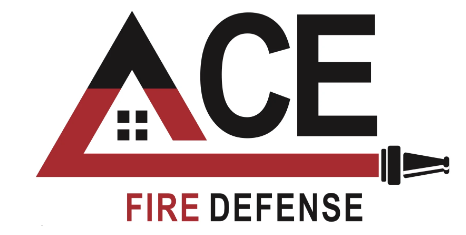FireHoseDirect often gets requests asking for "fire hose". The truth is there are many, many types of hoses designed to transport water, some of which are suitable for fighting fires and some that are suitable for other applications. This can be confusing at first look, but the good news is once we know how the hose will be used, we can match the hose to the job. This can result in savings for the user that does not need the highest quality hose for a light or temporary job; however, if they need the highest quality American-made hose, we have that too. If want the most durable hose, you can stop reading and buy our American-made double jacket fire hose with color treatment. Read on for the rest of the story.
First the basics, all jacketed hose begins with a rubber liner or tube, this is what holds the water in the hose. A "jacket" is simply a protective cover for the rubber tube and does not actually hold the water.
The job of the jacket it to protect the inner rubber tube from wear or cuts that will cause it to leak. At one time cotton was used to weave the jackets, but modern hose jackets are made using polyester threads. Cotton was susceptible to mildew and rot requiring lengthy drying of hoses after use. Some fire departments even have tall drying towers where they used to hang the hoses to thoroughly dry. Polyester jacketed hoses are resistant to mildew and can be put away wet, they may still develop an odor from stale moisture, but it won't harm the hose.
A single-jacket hose has one woven polyester jacket glued to the outside of the rubber liner. So a single jacket hose can protect the rubber liner fine if the hose is only being used occasionally for light use, for a temporary job or on a non-abrasive surface such as grass. Single jacket hose can save cost in the right situation. It can also save weight which can be important in applications such as fighting forestry fires where the hose is often carried on foot by firefighters. It is a misconception that forestry or wild land fire hose is extremely durable, if you need durable hose you need double jacket hose.
A double-jacket hose has an additional woven polyester jacket slipped over the first jacket so there are two layers of wear and cut resistance before the rubber liner is reached. Using double jacket hose can save money in the long run if you use your hose frequently or on abrasive surfaces. They can take a lot of wear and tear before the rubber liner is breached. Fire departments almost always use double jacket hose and usually American made double jacket hose. American made double jacket hoses have a denser weave, more threads per inch like a high quality sheet, so they can withstand higher pressures and more wear. Imported mill hoses have a less dense jacket weave, so while a double jacket mill hose will be more wear resistant than a single jacket mill hose and may be a good choice for many applications, it will not be as durable as an American made double jacket hose.
Another important function of the jacket or jackets is to support the inner rubber liner to withstand water pressure. How the jacket is woven and the density of the weave determines the water pressure rating or PSI of the hose. You will see pressure ratings for 1.5" hoses on our site range from 125 psi for single jacket mill hose up to 400 psi for American made double jacket fire hose.
A little more about durability. The polyester jackets feel like fabric because that is exactly what they are. The denser the weave of the fabric the more durable the jacket. When you see the words "Mill Hose" on FireHoseDirect that indicates a less dense weave compared to the American made single jacket or double jacket hoses on the site. It is therefore less expensive. Mill hose is fine for many applications, but if you want the best, Buy American! For an additional layer of protection get the American made hose in one of the NFPA colors offered. All jacketed hose starts out white, the color treatment locks the fibers and adds to the durability of the hose just like paint on a house or car.
Finally, the service life of any hose, similar to any other tool, will largely depend on how it is treated. Roll out hoses, do not spin them on their sides when uncoiling, avoid sharp objects and abrasive surfaces if possible, use a metal elbow when flushing fire hydrants to deflect debris, etc. As an example, we sometimes get questions asking for a hose that is okay for cars and trucks to drive over; we have even had a request for a hose that a train could run over! Single jacket, double jacket, rubber covered, hard booster it doesn't matter, this hose does not exist! What does exist are hose ramps made to protect hoses from vehicle traffic (not trains!). See our "Hose Ramps" category under "All Products" for ramp options to protect your hose investment. As always feel free to call, chat or email our customer service team with questions.


